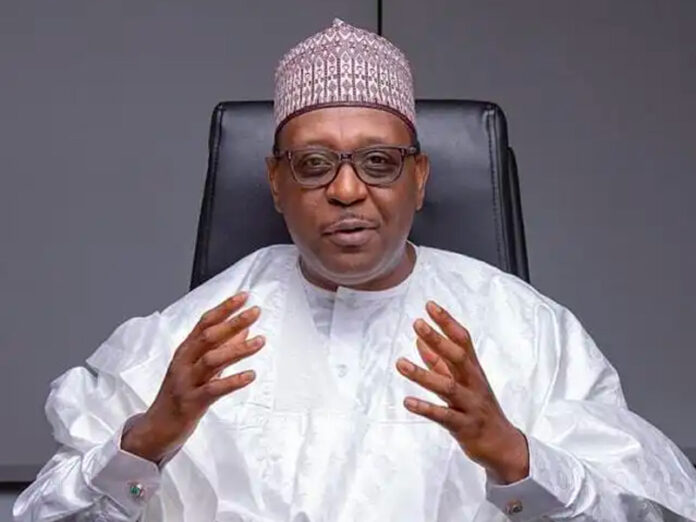By Blessing Otobong-Gabriel
Federal government has secured about $191 million from GAVI, the Vaccine Alliance to strengthen the health system.
This was disclosed yesterday in Abuja at the launch of GAVI Health Systems Strengthening Support-3 to Nigeria.
According to GAVI, the grant of about $191m, which is over the next four years is one of the largest ever made by the organisation.
GAVI is also investing close to $100m this year in a vaccination campaign to protect over 100 million children against Measles and Rubella.
Speaking at the launch, the Coordinating Minister of Health and Social Welfare, Professor Muhammad Pate said GAVI’s investment in Nigeria has saved millions of lives, enabled the country’s immunization programme to recover from the effects of the COVID-19 pandemic, and enabled the country to introduce new vaccines, including HPV, malaria and Mpox vaccines.
Pate, who was represented by the Director of Health Planning, Research, and Statistics at the Federal Ministry of Health and Social Welfare, Dr Kamil Shoretire stated that its mission is to save lives and protect people’s health by increasing equitable and sustainable use of vaccines aligns with the vision of the national HSSB, which is to save lives, reduce both physical and financial pain and produce health for all Nigerians.
“The government of Nigeria, under the leadership of President Bola Tinubu is passionate about making quality health services equitably accessible and affordable to all, and rapidly reducing maternal and deaths, and this is the fulcrum of ongoing reforms in the Nigeria health sector.
“Nigeria considers investing in the health sector as a key dividend of democracy and that the provision of quality health services as a fundamental right of every citizen, in line with the President’s Renewed Hope Agenda,” he said.
The Director of Health Systems and Immunization Strengthening at GAVI, Alex de Jonquieres restated its mission to ensure every child benefits from lifesaving vaccines.
He said since 2000, 1.1 billion children had been immunized with Gavi support.
“Nigeria is a crucial part of this story: 62 million children vaccinated and two million deaths averted via >$ 2.4bn in support to procure vaccines and strengthen the systems that deliver them. This has enabled the introduction of nine vaccines in Nigeria, including most recently, vaccines against HPV – which has already protected 13.5 million Nigerian girls against cervical cancer – and malaria.
“Recognizing Nigeria’s importance, the Gavi Board approved a special 10-year strategy for Nigeria in 2018. This strategy helps provide Nigeria with the vaccines it needs, with $1.1bn worth of vaccines procured since 2018 – one-third by the Government of Nigeria and two-thirds by Gavi. It also provides $260m to strengthen Nigeria’s health system to deliver these vaccines as well as additional support to implement vaccination campaigns,” he emphasized.
He explained that the two-pronged strategy has successfully extended immunization to over 1.7 million zero-dose children, reached more than 91 million under-five children through campaigns, and installed 11,405 cold chain equipment units.
He added that the strategy directly supported eight states by recruiting 3,683 health workers who also helped over 572,000 mothers give birth, renovating 493 primary health centres, and providing transportation and equipment—including motorcycles, buses, boats, and a refrigerated van—to support vaccine distribution and immunization services.
“While these results are impressive, we still have a long way to go. Nigeria is home to the largest number of zero-dose children, those who have not received a single dose of routine vaccines, in the world. Low immunization coverage results in repeated outbreaks of vaccine-preventable diseases and deaths.
“To address this, we are today launching Gavi’s next health systems strengthening grant with another ~$191m of funding over the next four years. This grant is one of the largest ever made by Gavi and is intended to help extend the reach of the health system to reach 1.8 million zero dose children and increase immunization coverage to 84 per cent by 2028.





